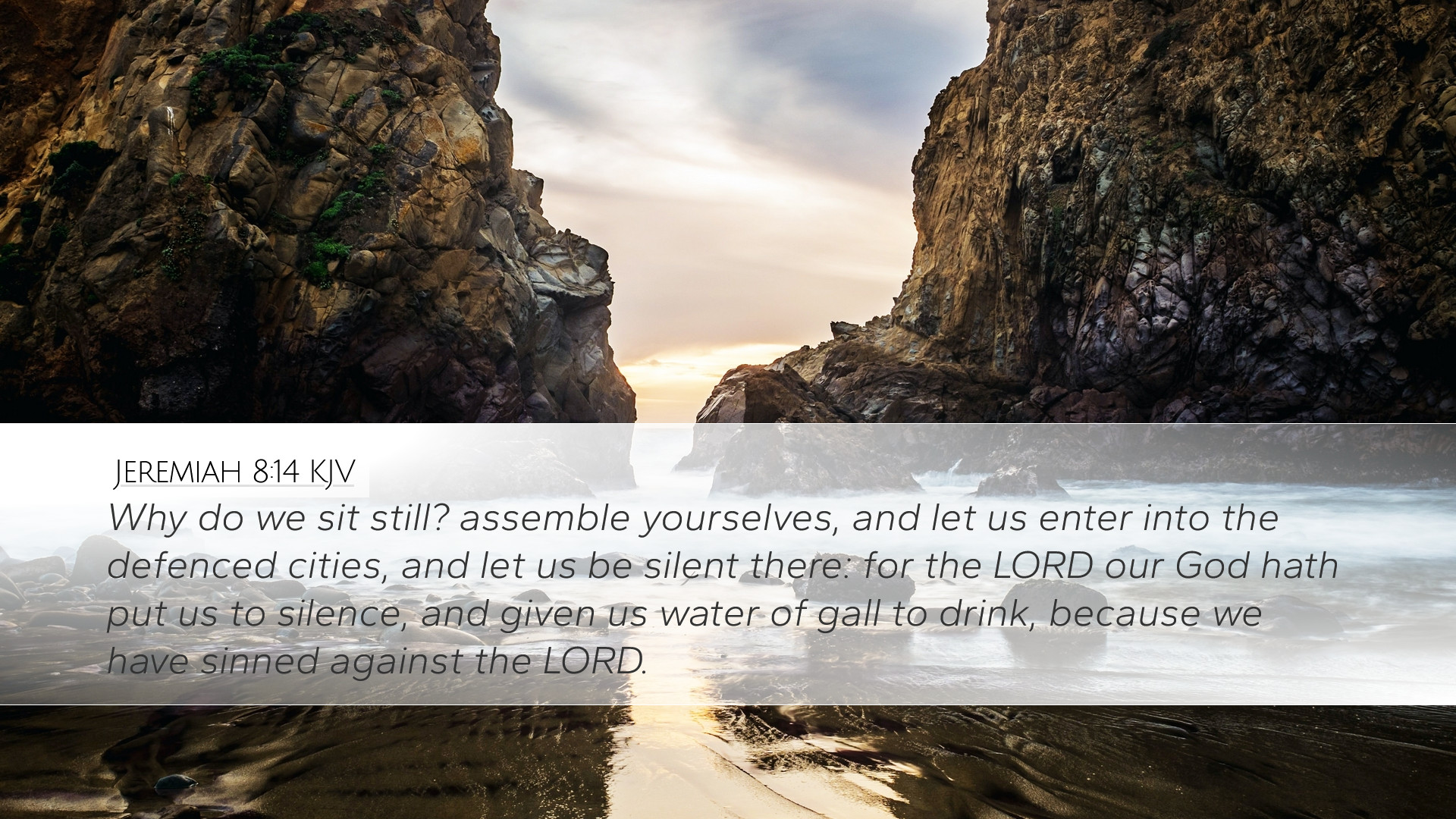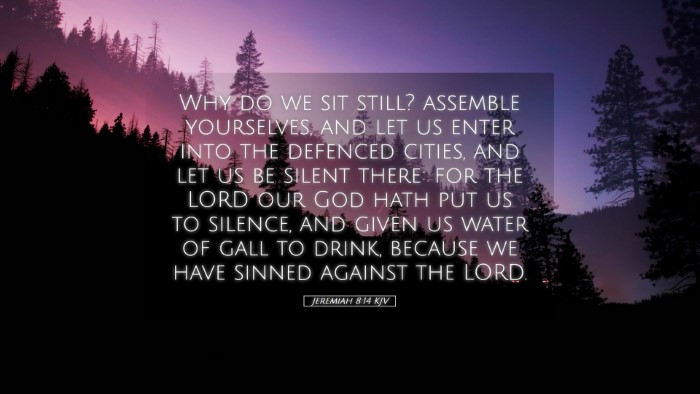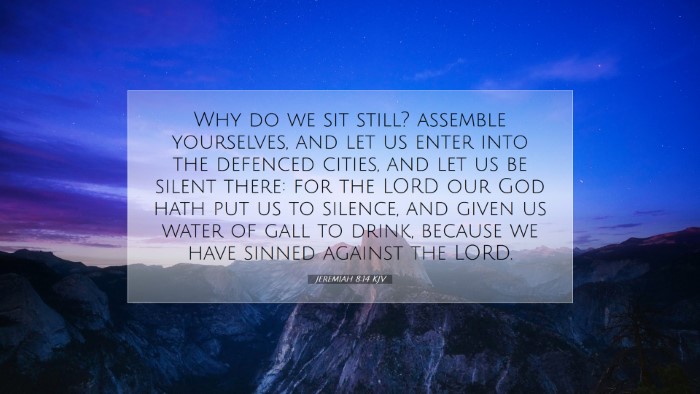Commentary on Jeremiah 8:14
Verse Text: "Why do we sit still? Assemble yourselves, and let us enter into the defensed cities, and let us be silent there: for the LORD our God hath put us to silence, and given us water of gall to drink, because we have sinned against the LORD."
Introduction
This passage from the Book of Jeremiah presents a poignant scene of desperation and spiritual reflection amidst impending judgment. The prophet Jeremiah addresses the people of Judah during a period of national crisis, urging them to recognize their plight and respond appropriately. The insights from various public domain commentators enrich our understanding of this text, revealing layers of meaning concerning sin, divine judgment, and human responsibility.
Contextual Analysis
The immediate context of Jeremiah 8:14 is the broader narrative of impending disaster facing Judah. The nation has turned away from God, leading to a series of prophetic warnings from Jeremiah regarding their fate. Matthew Henry emphasizes that the people are caught in a moment of paralysis, asking rhetorically why they sit still instead of taking action. This reflects both a physical and spiritual stagnation resulting from their disobedience to God's commandments.
The Desperation of God’s People
Here, the question highlighted in the verse indicates a sense of urgency. Jeremiah invites the people to come together, highlighting the importance of unity in facing judgment. Albert Barnes elaborates on this communal aspect, stressing that individual fortitude can be strengthened through collective action. The call to "assemble yourselves" reflects the need for repentance and a turning back to God.
The Symbolism of the "Defensed Cities"
The mention of "defensed cities" implies a place of refuge that might seem secure. Adam Clarke points out that these cities signify human attempts at protection and safety. However, in this context, they are futile against the judgment of God. The idea of entering these fortified places, yet being "silent there," highlights the futility of their efforts without repentance. It is a stark reminder that true safety lies not in physical defenses but in a right relationship with God.
The Silence of God
The phrase "for the LORD our God hath put us to silence" suggests divine intervention in the people's condition. Matthew Henry interprets this silence as God's way of communicating judgment. The silence serves as a reflection of their spiritual barrenness—a withdrawal of God’s favor as a consequence of their sins. This silent state calls for introspection; the people are confronted with the results of their actions.
Gall as a Symbol of Despair
The metaphor of drinking "water of gall" is particularly striking. According to Albert Barnes, gall represents bitterness and suffering. This imagery elucidates the painful reality of sin’s consequences. It indicates that the people’s transgressions have led to a life filled with bitterness—a life far removed from the joy and peace promised by God. The term implies that their punishment is severe and that they have brought upon themselves a state of bitter despair.
Reflection on Sin and Judgment
The final phrase, "because we have sinned against the LORD," encapsulates the core reason for their predicament. Adam Clarke notes that acknowledging their sin is a crucial step toward healing. The emphasis on sin places the responsibility squarely on the people; they are not victims of circumstance but rather participants in their own downfall. This recognition is essential for any meaningful repentance to take place.
Application for Today’s Believers
Jeremiah 8:14 serves as a powerful reminder for contemporary believers of the necessity of regular self-examination. In a world filled with distractions, it encourages the church to come together in unity, reflect upon its collective actions, and seek God earnestly. As Matthew Henry suggests, silence in the face of spiritual decline is dangerous; believers are called to respond actively to the voice of God and maintain a vigilant heart against sin.
Conclusion
Jeremiah 8:14 is not merely a historical account; it carries profound theological implications for the church today. By collecting insights from commentators like Matthew Henry, Albert Barnes, and Adam Clarke, we see a picture of human frailty in contrast to divine judgment, and the urgent need for repentance. Acknowledgment of sin, unity in prayer, and a sincere return to God remain relevant themes that echo through the ages, reminding us that in our silence, we must not ignore the voice of God.


